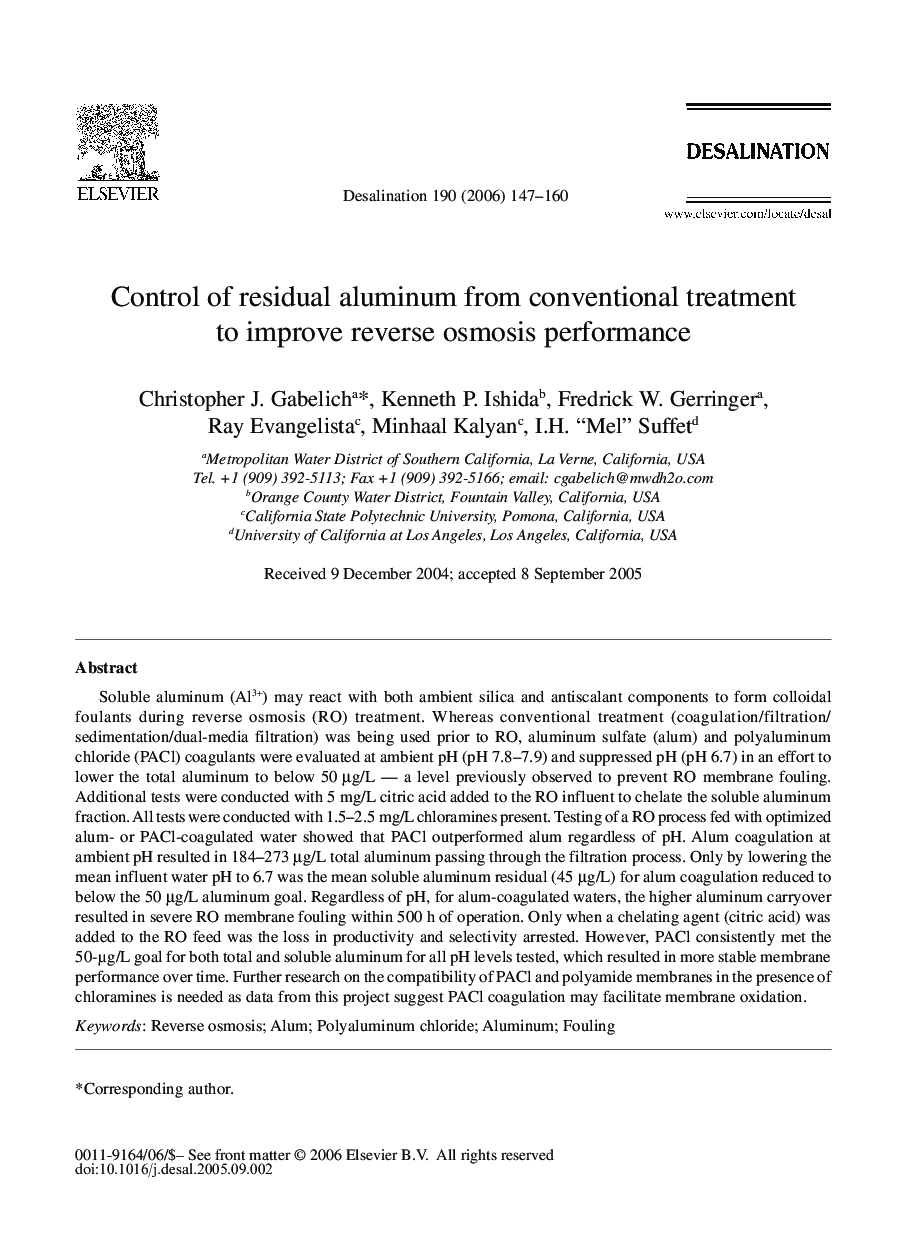| کد مقاله | کد نشریه | سال انتشار | مقاله انگلیسی | نسخه تمام متن |
|---|---|---|---|---|
| 629087 | 1455500 | 2006 | 14 صفحه PDF | دانلود رایگان |

Soluble aluminum (Al3+) may react with both ambient silica and antiscalant components to form colloidal foulants during reverse osmosis (RO) treatment. Whereas conventional treatment (coagulation/filtration/sedimentation/dual-media filtration) was being used prior to RO, aluminum sulfate (alum) and polyaluminum chloride (PACl) coagulants were evaluated at ambient pH (pH 7.8–7.9) and suppressed pH (pH 6.7) in an effort to lower the total aluminum to below 50 μg/L — a level previously observed to prevent RO membrane fouling. Additional tests were conducted with 5 mg/L citric acid added to the RO influent to chelate the soluble aluminum fraction. All tests were conducted with 1.5–2.5 mg/L chloramines present. Testing of a RO process fed with optimized alum- or PACl-coagulated water showed that PACl outperformed alum regardless of pH. Alum coagulation at ambient pH resulted in 184–273 μg/L total aluminum passing through the filtration process. Only by lowering the mean influent water pH to 6.7 was the mean soluble aluminum residual (45 μg/L) for alum coagulation reduced to below the 50 μg/L aluminum goal. Regardless of pH, for alum-coagulated waters, the higher aluminum carryover resulted in severe RO membrane fouling within 500 h of operation. Only when a chelating agent (citric acid) was added to the RO feed was the loss in productivity and selectivity arrested. However, PACl consistently met the 50-μg/L goal for both total and soluble aluminum for all pH levels tested, which resulted in more stable membrane performance over time. Further research on the compatibility of PACl and polyamide membranes in the presence of chloramines is needed as data from this project suggest PACl coagulation may facilitate membrane oxidation.
Journal: Desalination - Volume 190, Issues 1–3, 15 April 2006, Pages 147-160